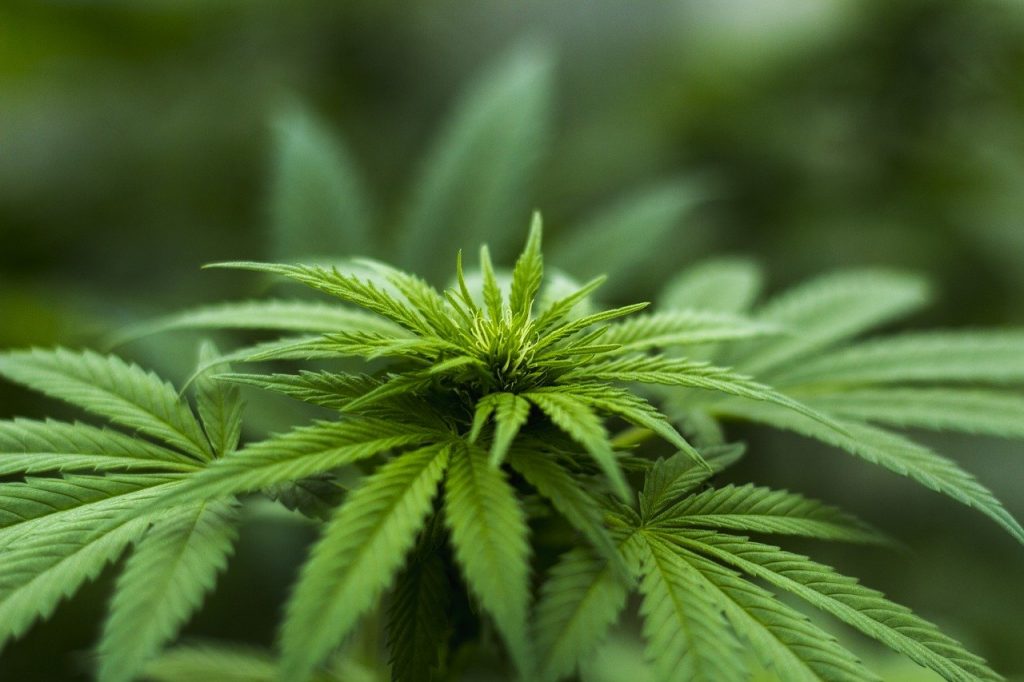CBD helps regulate your well-being by affecting certain nerve-cell receptors.
If you’ve ever jumped out of a plane, won a game of Demon’s Souls on your PlayStation, or run a marathon, you’ve experienced an endorphin rush. Endorphins are feel-good chemicals produced by your pituitary gland. We’ve all heard about them. But did you also know that your body also has an analogous system called the endocannabinoid (“endogenous cannabinoid”) system?
Your body creates its own endocannabinoids and recognizes cannabinoids from the cannabis plant. The endocannabinoid system works with CBD to regulate sleep patterns, appetite, and mood.
What is the endocannabinoid system?
“Endo-” is a Latin prefix meaning “within,” and “cannabinoids” are compounds found in cannabis such as psychoactive tetrahydrocannabinol (THC) and non-psychoactive cannabidiol (CBD). “Endocannabinoids,” then, are the cannabinoids naturally produced by your own body.
Your body has a system of receptors structured in such a way that they can receive molecules from the cannabis plant. In fact, endocannabinoid receptors are present in all vertebrate animals. In the animal kingdom, though, only human beings are savvy enough to breed the cannabis plant in order to maximize the value of these mood-boosting and health-boosting receptors. Like a key in a lock, endocannabinoid molecules fit these receptors perfectly to unlock health benefits.
How does CBD support your endocannabinoid system?
Because cannabinoid binding sites are part of your central and peripheral nervous systems (that is, your brain, spine, and nerves), their influence extends throughout your body. Everything your nervous system regulates — appetite, metabolism, sleep, and the immune system, to name a few — is potentially influenced by CBD.
There are two different kinds of endocannabinoid receptors:
- CB1 receptors, which are found in your central nervous system, i.e., your brain and spinal cord.
- CB2 receptors, which are found in your peripheral nervous system, i.e., your cranial nerves, peripheral nerves, neuromuscular junctions, and immune cells.
When endocannabinoids bind to these receptor sites, they send messages to your nervous system to take action. What action depends on which receptor site the endocannabinoid binds to. For example, if an endocannabinoid binds to your CB2 receptors, which help regulate your immune system, your body may modulate its inflammatory response.
Let’s consider how CBD’s effects on the endocannabinoid system provide benefits often sought by CBD consumers: relieving stress, enhancing exercise, promoting sleep, and easing pain.
How CBD Affects Functions of the Nervous System
THC, the psychoactive cannabinoid in the cannabis plant, can bind to both CB1 and CB2 receptor sites. CBD doesn’t bind to these sites. Researchers are still figuring out exactly how CBD interacts with your body’s endocannabinoid system, but it looks like it may prevent your body from breaking down the endocannabinoids that stabilize your body’s internal processes. In this way, CBD helps regulate all the bodily functions, from sleep to mood, that are affected by your nervous system.
CBD has powerful anti-inflammatory effects that can help you recover more quickly from injury. Intense workouts can cause small tears in the muscles, which triggers a natural inflammatory response. Using CBD during this process can increase the body’s ability to produce its own cannabinoids, thereby reducing inflammation and pain.
The endocannabinoid system plays an integral role in the body’s ability to control and feel pain. When CBD interacts with the ECS, a coordinated effort to promote analgesia (inability to feel pain) is one result. This ability to inhibit pain responses is only one reason CBD, and particularly high-potency CBD oil, is being studied as a means of relieving hard-to-treat chronic pain.
Considerable evidence also suggests that CBD eases the anxiety attending such social situations as public speaking. When CBD interacts with CB1 receptors, it can help regulate fear, anxiety, and other reactions to stress.
CBD has been shown to have a calming effect on the central nervous system. Large surveys by Project CBD have reported the many sleep benefits enjoyed by typical CBD users, including an ability to fall asleep faster and experience fewer instances of night waking. And since CBD isn’t habit-forming, it is an appealing alternative to other sleep aids, whether prescribed or over the counter.
CBD helps support all the bodily functions that depend on your nervous system—and that’s a lot of stuff, ranging from how soundly you sleep at night to how well you cope with stress during the day. The beauty of CBD is that you don’t have to know exactly how or why it works to enjoy the benefits.
